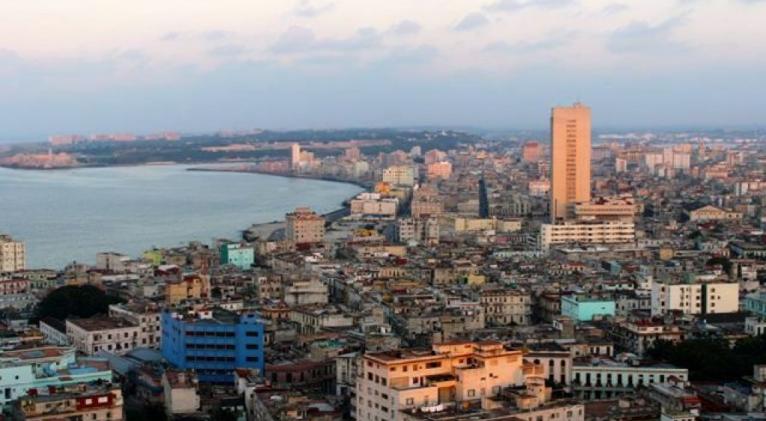Winds blowing behind Cuba
especiales

In October of this year the New York Times, hardly known for extreme political radicalism, went on a virtual campaign calling for the resumption of normal relations with Cuba. And this week, London’s Financial Times, perhaps generally more conservative than the New York Times, has now called for resumption, recognizing that global opinion, now well beyond that of the wide array of developing countries including the BRICS, has generally moved, or has been moving in recent years, in that direction.
In coming to this conclusion, the Financial Times joins an apparently increasing array – not simply from the developing world – of business organizations which recognise that the effort of the Cuban government to commence a modernization of the country’s economy will inevitably mean an opening to the major centres of economic activity, naturally including those of the Western world.
The FT points out that the European Union “as a whole recently agreed on a negotiating mandate for an association agreement with Cuba” as a basis for a new relationship that allows “the European business community to play a greater role in the Cuban economy”; and that it is recognizable that President Obama desires to move American public opinion and the Congress in that direction.
Public opinion in Europe is probably more favourable to encouraging the emerging policy steps being undertaken by the Raúl Castro administration, having, in the context of Europe’s colonial and ex-colonial relationships, experience of how political winds can shift in developing countries as they seek to come to terms with the increasing globalization of economic relations. There is too the apprehension of the extent to which engagement with the West’s private sector economies is likely to encourage a liberalization of domestic political relations, even as regimes attempt to hold on to their dominating political grips.
President Obama, already in a somewhat weakened position as he goes through his second and final occupation of the presidency, by his electoral setbacks in the recent congressional elections, will be contemplating how he can most practically facilitate a reorganization the US-Cuban relationship, without encouraging the trend among his Republican victors in those elections towards a degree of opportunism aimed at distracting and politically disengaging him from the tasks to which he has been committed.
It would appear to be generally the case that American public opinion is no longer, in its majority, so negatively opposed to a resumption of relations with the Cuban government. And it is also unlikely that the US population would wish to see a weakening of the Cuban regime, in the sense that Cubans once again begin to contemplate a major rush across the sea to escape from persistent hardship.
So it also appears that American public opinion has already well recognized that the present ongoing, and inevitable, transition from dominant rule by the Castroite successors to Batista’s dictatorship, now needs to be facilitated.
This in turn implies that the widespread pressure exerted by the US over the last many decades must now be relaxed, even though done in a manner that will induce Obama’s opponents, with their present feeling of political dominance over the critical representative institutions of government, to look beyond the domestic political battle.
The President has shown himself to be inclined to deliberately calculate the required steps, and to seek to engage the Senate and the House of Representatives in such a way as to inhibit the Republicans from, as it were, taking the issue to the streets on a grand scale. But it is also the case that, big as the United States is, he will also have to be prepared to indicate to domestic opinion how affected the United States will be, in terms of relationships with his Western allies, if they come to feel that American negativity is likely to slow down their own initiatives towards Cuba.
The present situation in Cuba-US relations is somewhat reminiscent of American attitudes towards coming to terms with the People’s Republic of China, when, it will be recalled, President Nixon, having decided that the matter had to be pursued, took extreme care to hide his options and choices from the American people, to the extent that they only became aware of what the President was doing when the required deed had been done.
This kind of secrecy is unlikely to be able to be pursued by President Obama towards Cuba, especially as there is already a growing sentiment for resumption of relations among the Americans’ European allies, and an increasing strata of American influencers of political decisions. And in addition, the American administration is already aware of the widespread opinion in the hemisphere that the time for resumption of relations is here, as indicated in the decision of the next host country of the Organisation of American States, Panama, taken on its own, to invite Cuba to the next Summit of the Americas, an issue raised at the last summit in Colombia in 2013.
How the US President will deal with this situation is left to be seen, but there would seem to be a majority of OAS members, among which are members of Caricom, supportive of an initiative that will certainly influence Cuba’s normalization process. And the people of Caricom will have to be reminded that the initiative, in the frigid Cold War days of 1972, by the then leaderships of Guyana, Jamaica, Trinidad & Tobago and Barbados (some of whom were quite hostile to communism and communist presences at home), taken to establish diplomatic relations with Cuba, was one, not insignificant, step along the way to the present calls in the Western world for normalization.













Add new comment